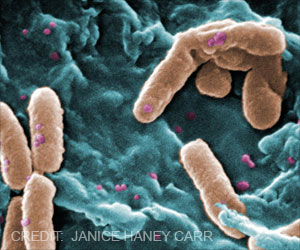New antibiotic can kill ‘superbugs’ while doing the least amount of harm to the body’s beneficial bacteria.
- Antibiotic resistance is a growing threat to mankind.
- Scientists have now developed a new antibiotic that can kill several important ‘superbugs’.
- This molecule causes the least amount of harm to the body’s beneficial bacteria.
The new study’s researchers have created a unique antibiotic candidate that combats this issue. Scientists began with an existing antibiotic that works well against gram-positive bacteria. They made structural modifications to make it more effective against gram-negative bacteria.
Fabimycin, the study candidate, was effective against 54 different strains of bacteria, including E. coli, Klebsiella pneumoniae and Acinetobacter baumannii, in over 200 clinically isolated colonies of resistant bacteria. In studies on mice, it was shown that Fabimycin might treat drug-resistant pneumonia or urinary tract infections while bringing bacteria levels even lower than they were before the infection.
In addition, Fabimycin was relatively selective in the bacteria it attacked, leaving certain innocuous bacteria unharmed. That’s an improvement over many antibiotics now in use, which indiscriminately kills numerous helpful microorganisms and leads to a variety of negative side effects.
Further research may lead to the ultimate addition of Fabimycin or comparable compounds to our arsenal against superbugs, particularly those illnesses that are difficult to cure.
Source-Medindia
















